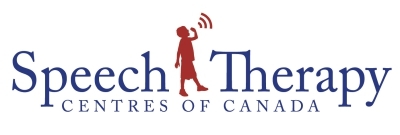May is Speech and Hearing month. To celebrate we’re sharing some of our thoughts on speech and communication.
Did you know that communication is MUCH broader than one’s speech and language? While adequate skills in these areas are essential to sharing our thoughts and feelings and accomplishing our daily goals, there is so much more to communication.
Communication on one level means being able to express your wants and needs. However, equally as important is the ability to expressing your opinions, thoughts, and ideas.
Communication is about forming strong and meaningful relationships with friends, children, parents, co-workers, teachers and more. It is about experiencing success at school, in the community and in the workplace.
At Speech Therapy Centres of Canada, our team of speech-language pathologists works with many types of clients who hope to improve their ability to communicate. Here are some of the ways we do so.
When it comes to children, it’s the parents who are bringing them to see us. The children may be attending the clinic for a variety of reasons. Some are non-verbal (no words), some have speech sound difficulties, and others may have difficulty stringing grammatical structures (such as nouns and verbs) together.
Many of our clients, children, adolescents and adults, have social communication challenges such as difficulty with eye contact, taking turns in conversation or possibly interrupting others frequently.
We also work with adults who present with different types of needs. Some clients wish to alleviate their stuttering or reduce their accents, while others have experienced a brain injury (such as a stroke) and are frustrated with their difficulty communicating. We also work with people who have had motor vehicle accidents and have related communication issues.
Although we don’t diagnose issues such as ASD, ADHD, ALS, Parkinson’s Disease, we are very involved in helping people of all ages learn to communicate.
When treating our clients our ultimate hope is to ensure that they have access to participate with others through communication.
We would love to know- What does the ability to communicate mean to you?
Jeanette Podolsky, reg. CASLPO, is a speech-language pathologist and Clinical Director of the Speech Therapy Centres of Canada.
